It was a sunny day when I met Sara from MESSA at the Kantine Berghain, where the band was playing the last show of their tour that night. We started taking photos around the area of the famous techno club Berghain, where you can find a lot of cool urban-looking spots, perfect for a spontaneous shoot. Everything went well, and we got into a flow of creativity pretty soon – until suddenly, in the middle of the shoot, a hand came from behind and grabbed my camera and tore it right out of my hands. In a state of shock, we looked at a guy, who then tried to run away with my camera. We followed him, and he soon realized that he could not escape. But instead of letting go of the camera, he smashed it onto the concrete ground and ran away. So that was the end of our shoot – the camera was broken. Luckily I found enough great photos on the memory card to complete this feature. I had to do the following interview via online video conference a few weeks later because we spent the rest of the time before the gig waiting for the police.
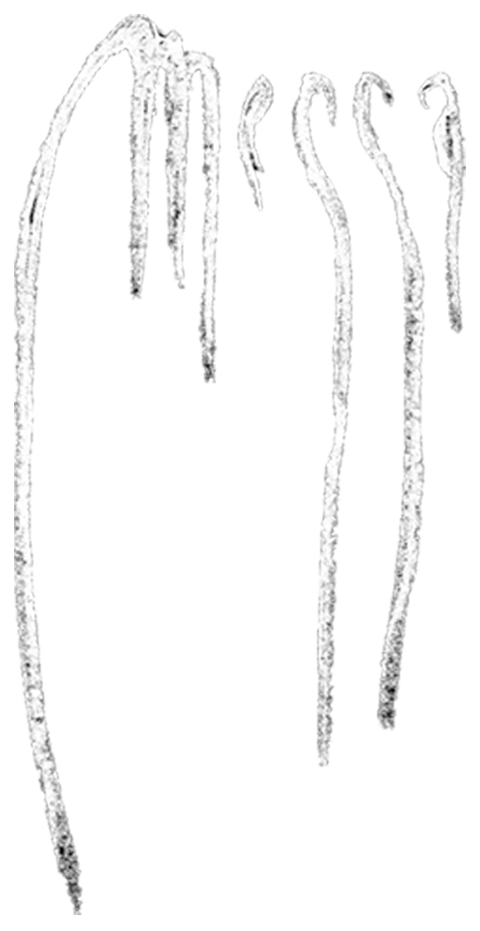
Your tour with SABBATH ASSEMBLY has just finished. When you come back home after such a long tour, is it a relief or are you rather sad?
Both of them. Being on tour is as much fun, and as much emotional, as it is exhausting. It’s like black and white. It is a strong feeling because a lot of things happen, and every day is so different. You have to live very close to other people, and sometimes that’s not easy. Luckily with Messa we have a great connection with each other, and we deal very well with each other because we know and understand one another pretty well. But you can never know what can happen.
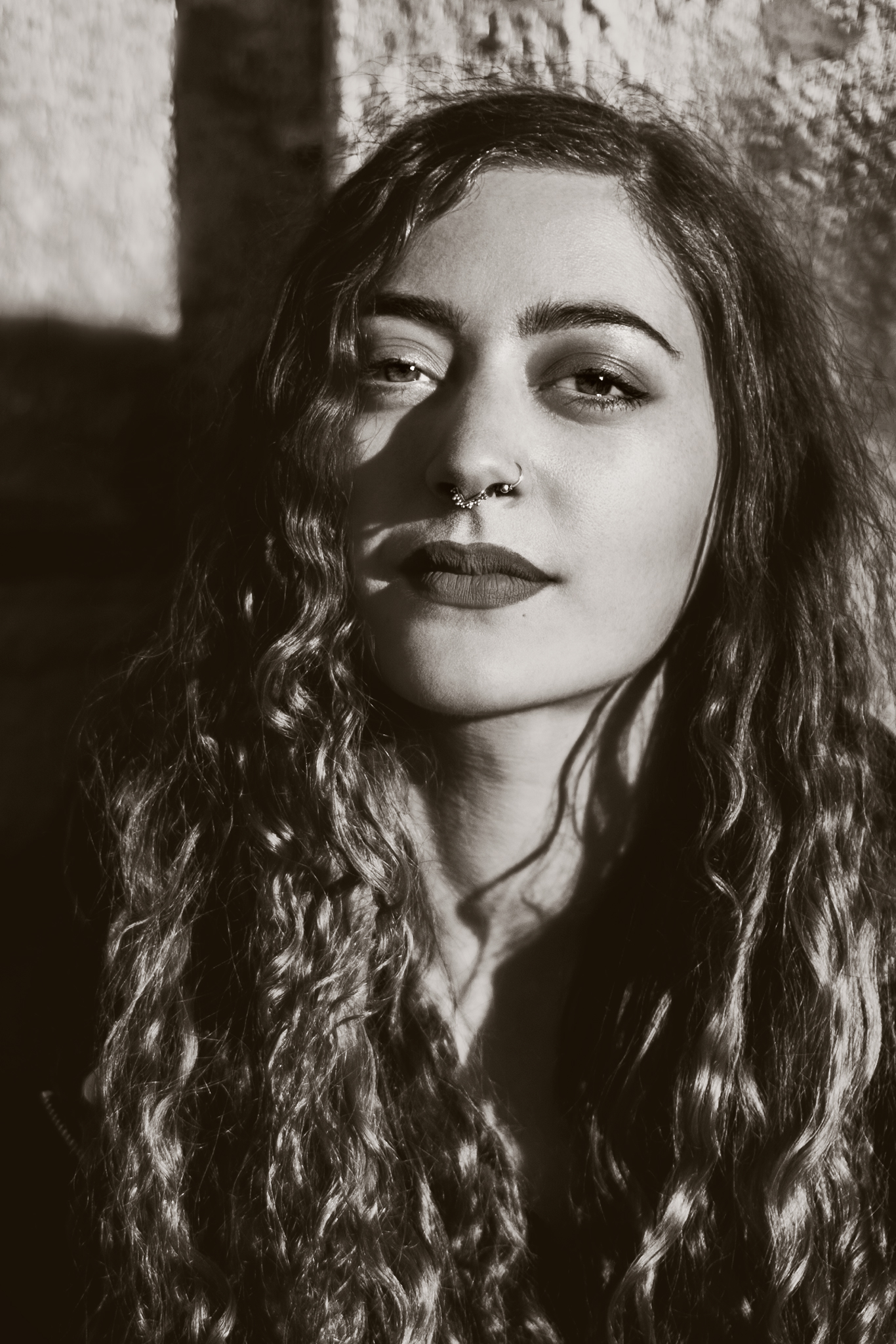
When you are with people, there will always be conflicts. No matter how much you like the people. When you are together for such a long time, there will be a time when conflicts arise.
No, you can’t avoid this, you are right. But still we get along very well within Messa. It’s cool to be on the road with them, especially doing what we love to do. I personally like being on tour a lot, even if it’s emotionally strong – it’s kind of like a challenge. When I did the first tour, I was 20 years old, and after I came back home, I said, “This is what I want to do – as much as I can.” I felt really comfortable with it, and I still do. When I get home after a ten-day tour, I’m happy to be home; I’m happy to spend my time with my boyfriend and with the people I love. So I like both, actually. At this point in time. I don’t know what’s going to happen in the future of course – but I feel tied to the place where I live right now. I love these mountains; I love nature and the places that are around me, and I love living here. So I´m happy to be back home. Going on tour is amazing, and I love it – but I like both things, actually. I know that I can find peace on the road, and peace at home. I have my way to escape from reality when I´m on tour. When you’re stuck in a van, it’s not always easy to take time for yourself, which I think is very important. Because when you stay together all day long, sometimes you have your own thoughts, and you need to stay alone for some period of time. I think that is normal when you share that amount of time with people, even if it’s friends.
I’m curious. What are our strategies to escape from the stress on tour?
I have my own way to close up inside myself, and meditate and medicate myself. It’s always been lovely for me to go on tour. Of course in the beginning it was a little bit harder because I didn’t know how to deal with some kinds of things, but by now I have some kind of auto-pilot [laughs], and I can definitely manage that.
What are these downsides of being on tour that you have to cope with?
If you feel the need to stay alone and you cannot find a way. In the beginning, I had some of these issues because I didn’t know how to cope with that. It was a strange feeling, and I was wondering whether I was supposed to feel this way or not. But in the end, I came to the conclusion that this is my way. If I experience things in a certain way, that’s how it is for me. It’s not gonna be the same for everybody. Sometimes you have to deal with some very stressful situations because you stay in a van for six hours straight, and then you arrive at the venue and unload the van. Then you do the soundcheck, and then you have to play right away because there was a traffic jam, or you had another problem of some kind. So sometimes it is a bit stressful because you never know what’s going to happen the next day.
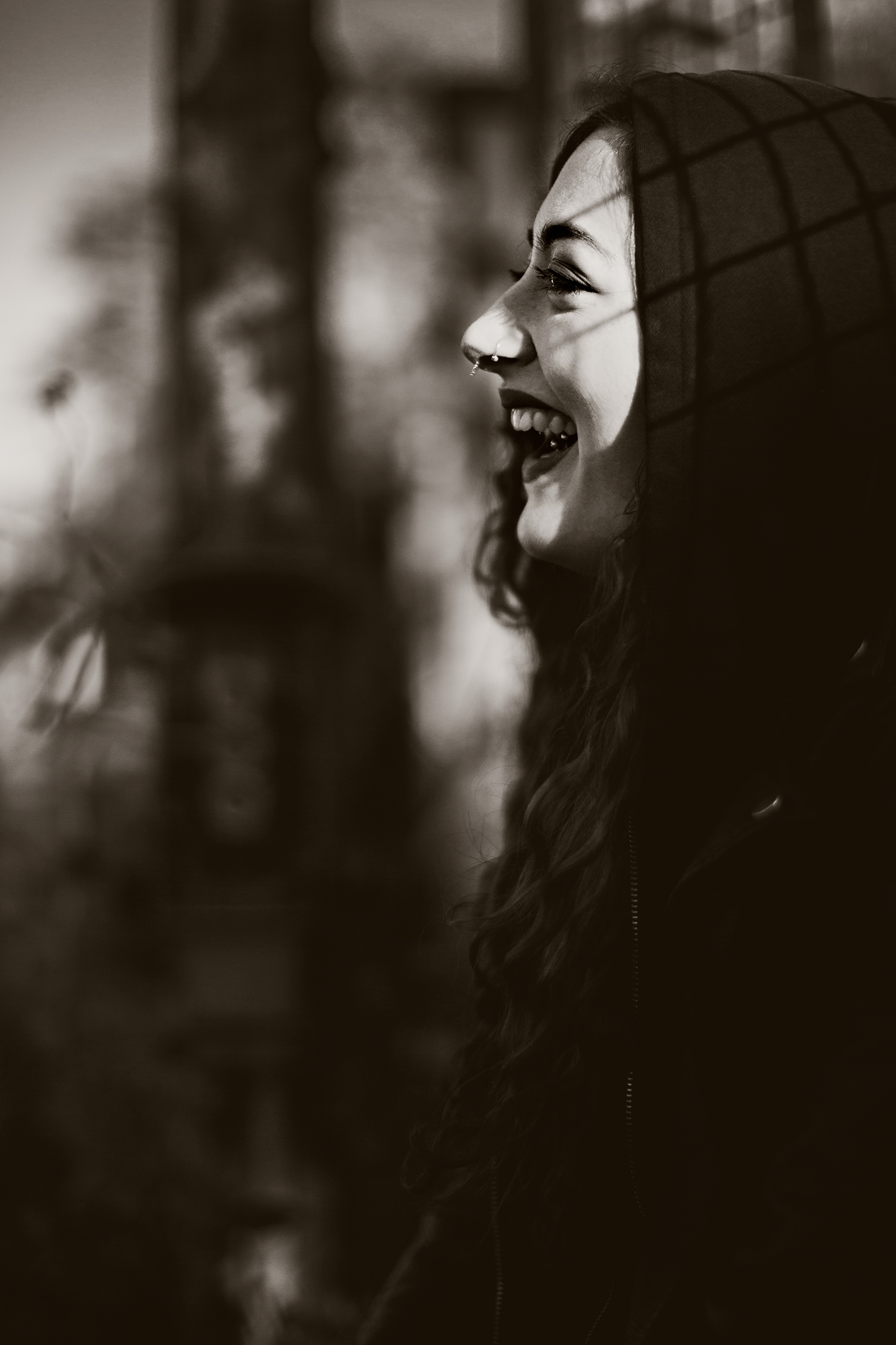
But this is something that I actually embrace because I accept it, and I know it’s going to be like that, and I actually enjoy that unpredictability. There’s the curiosity of discovering what is going to happen next, and for me it’s a bit funny, I must say. I get along with it pretty well, but you have to set your mind in a certain way. You cannot plan it. Even if you have scheduled shows and you’re supposed to do something, you never know what will happen – whether you are going to sleep for only two hours, or whether you are not going to sleep at all. Or you sleep for ten hours like a baby, and then you have a huge feast for breakfast. Or you will be disturbed by someone who is snoring like a motherfucker [laughs]. Many things can actually happen. I embrace this nature.
It’s also not nice when you miss the person you love. It has its weight because I am super emotional and sensitive – so it’s normal to miss the person you are in love with. But in the end it’s only ten days, and then you are coming back – so that’s fine. I go on tour because I decided to – because I like that. I´m not forced to. It’s because I love expressing myself by singing, and staying with people, and meeting people. So if I have the luck that I am able to do this, and of course the person that I am staying with completely understands this thing. Otherwise there’s no way; it would be a 99 percent chance to crash. It’s not something that people understand all the time because sometimes people say, “Ok, but what about me?” Or sometimes they’re jealous, but this is not my case, luckily. For some people, going on tour is pretty tough because you miss the person you love. But you will overcome that because you are doing something you really like. You do it with a purpose.
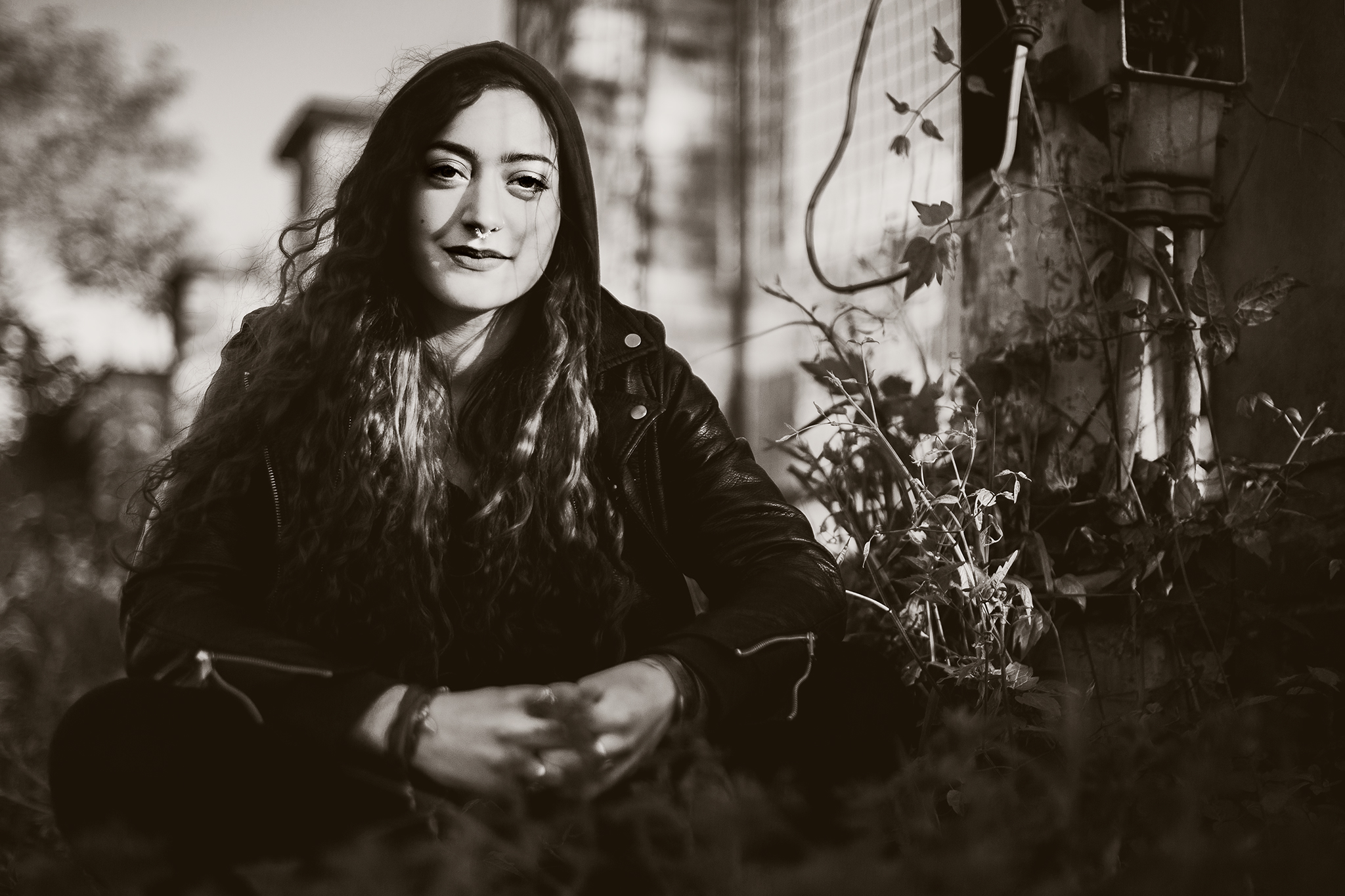
Did you travel a lot before you started touring with the band?
When I was a kid my parents had, and still have, a caravan. So we just toured all of Europe basically. We’ve been through about 80 percent of Europe with the caravan. I’ve been super lucky to have the opportunity to travel a lot when I was a kid, and I kind of got used to being in a different place everyday, just moving around and discovering, not knowing what will be the next thing. I think I got used to this kind of shifting or exploration then, and I´ve always loved it. So that´s probably also why I like touring, probably more than other people. It’s one of the passions my parents have passed on to me, along with music.
I´ve been listening to music the entire time. I remember music everywhere and every time in my existence. My parents have old videos of me dancing and singing, and jumping on a sofa when I was three years old. They don´t play instruments at all, but they always loved music. When I told them that I wanted to do music, and learn how to play an instrument, they were super supportive. It’s lovely because I didn’t have to fight with them about it. They love music so much, and they gave me this gift of listening to very cool records when I was a kid. I remember my father would make me listen to IRON MAIDEN and, being a six year old, I found it quite cool watching the covers with Eddie, which are super crazy and scary. Another very vivid memory in my mind is of when I was looking through my parents records. There was the Born Again album by BLACK SABBATH, and you know the cover has this pretty creepy baby with the red eyes. I remember that I was so fascinated, yet a little bit scared. I always used to take the record out little by little, very fascinated and intrigued, but still wondering what the fuck that was. My mother used to listen a lot to new wave and dark ‘80s stuff like KILLING JOKE, BAUHAUS, and SIOUXSIE AND THE BANSHEES, but she also listened to some Italian music from the ‘80s. My parents are not metalheads, just normal people with maybe a wider taste in music than the people of their age have in this area. We don’t live in a big city. There are tiny places with not so many people around here. The villages are 3000-5000 people, so compared to London, Stockholm, or Rome, it’s really small. There’s a smaller percentage of alternative music listeners. At least it was like that in the ‘80s. I’m really glad that they shared this thing with me, and I can’t thank them enough for that. There is a lot of music that I liked to listen to when I was a kid that I am still listening to, apart from LED ZEPPELIN or some more classic rock stuff, which was the best way to begin. Also some heavier or stranger records. I found this tape at my grandparents’ house. It was from 1983 or 1984, and it had Bauhaus on it. But it wasn’t an original one; it was a copy, and my mother wrote all the tracks on it by hand with no cover, just the cassette. I was so emotional when I found it. It’s some of the things that I still listen to today, and I can share that kind of taste with my mum, and that’s super cool. When I was seventeen, I was in my first band, and when we were asked for gigs, my parents were totally happy and have always been lovely. That is also something that I am really grateful for.
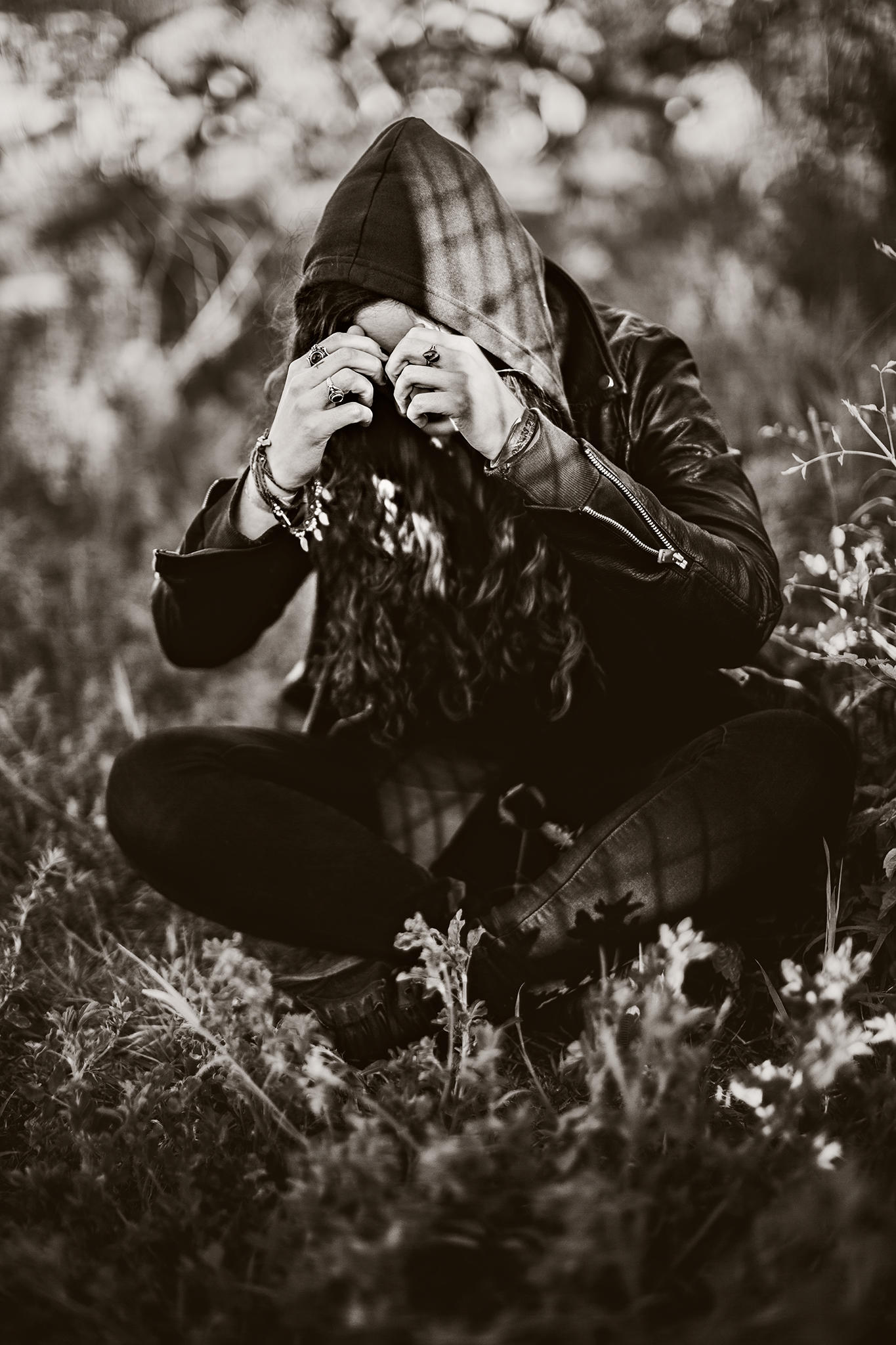
Now you play in a doom metal band.
Is that your favourite genre or is it merely a coincidence? Tough question. It’s going to be a long answer [laughs]. Of course, labelling is important in some kind of way, but still it is not. I will play anything – I listen to Altars of Madness, and then to a Nigerian funk compilation from the ‘70s. There is a huge field of interest and taste in what I listen to. With Messa, everything went in a certain way. We never had never played doom before, and it’s a genre that we loved. So we said ok, we would love to play this; we love PENTAGRAM, so that developed in its own peculiar way. We tried not to follow a path 100 percent because we always search for a bit more originality, to bring something unique to the table – instead of sticking to something that has been done and redone and redone all the way. I would do a “one hundred different genres” band, if it were up to me. I´ve been growing up doing hardcore punk, and then I started playing death, crust, and grind. Did you growl? No, I played the bass. Messa was my first experience as a singer. It was pretty tough to deal with that. I’m super shy, and it took a lot of time to develop, first of all, the will to do that.
That was the most important thing to get to, for me, because I was always unsure. At a certain point, I found myself in a situation where I asked myself, “What if I died tomorrow, what would I love to do?” And one of the first things that came up was singing. So as soon as this situation changed – I had health issues – I knew that I had this determination, and that I wanted to sing. I started to overcome all of these difficulties. The first one was playing in front of somebody else. Then it was playing in front of other people. And then it was recording a record, and then doing the first gig. You know a funny thing? It sounds incredible to me now, that on the first Messa concert that we had, I sang with my back to the audience [laughs]. Seriously! I was too scared, and I was too shy, and I was trembling. It was a development the whole way. I followed my will, basically, and I didn’t look at the difficulties and doubts and just did it. So I slowly started changing more and more, and now I have no problems going on stage. It’s still a cathartic experience for me, in a good way, and I´m not scared by that anymore. Maybe for some bigger stages or bigger concerts I may feel some butterflies in my belly, but I don’t have stage fright as I used to have.
I think it’s a pretty normal thing to have.
It’s not easy sometimes to be in front of other people because you know they will be judging you. So I used to get a lot of paranoia at the beginning. You wonder what these people will think about me, what if I sing like shit, what if I, what if I. At the end, I decided to quit this paranoia and this anxiety. You’re doing something that you love to do, so if you feel good, and you´re doing it because you want to – then don´t give a fuck about what other people think. I‘ve been singing for four years now, so a lot of time has flown by.
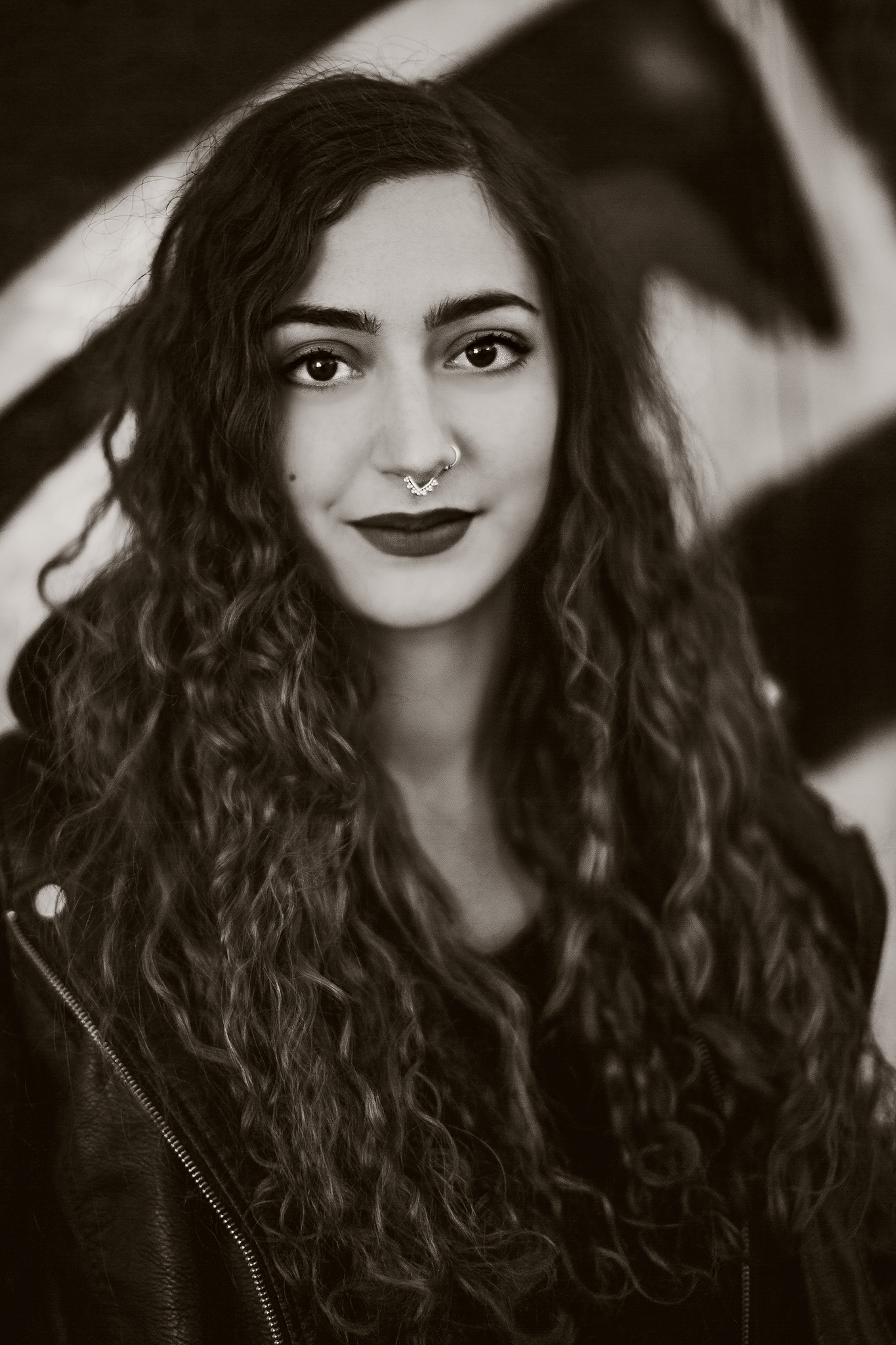
What I like about your voice is that it’s totally clear, very classical. A lot of women in metal sing with an edgy voice or are growling, but you don’t. Was this a distinct decision you made, or did it just happen?
It basically just happened. As I said to you before, Messa was my first experience as a singer, so I think that the songs from the first and the second record are very different from each other, vocally speaking. On the first record, the vocal lines were more bluesy, while on the second record they’re more jazzy, more difficult. But I didn’t really think a lot about it; it just came around by itself. The guys were playing, and I didn’t really concentrate on what I was going to do. I just started jamming the vocals, and all the songs came out like this. I sang a lot by myself because I didn’t sing in front of the others. But when I was alone, I was singing all the time – in my car, in my room, and I always loved to do that. I was just too scared to do it in front of anybody except me. It just came naturally to me to sing in a certain way. I got to understand how my voice works; how to make it sound like mine and not like anybody else’s. One of the things that I really love about the vocals is that you have your own, personal, unique voice – which is the result of how your body is, of how your mind is, and what you want to express with it.
There are such a variety of reasons why your voice sounds exactly the way it does, and it‘s a powerful way of expression. You can sing anywhere and any time. You don’t need cables, a headset or a PA. There is something beautiful and primitive in this sense that I really love – in a philosophical sense, before anything else. For me, it’s always been a pleasure to do that. But it took a lot of time, and I still have to understand what I can do. There are still a lot of things that have to get better with my voice. I don’t really think so. [Laughs] From my perspective, I always want to do the best I can and push the boundaries set forth further and further. I would never record something that I cannot sing live. Also I hate autotune and all that kind of stuff – this is never going to happen to me. Instead, I will sing three hours straight in a recording studio, just on a verse, to get that – even if I get crazy mad. I will definitely do that instead of relying on a software to have my voice adjusted until it’s perfect. As I said, I would never record something I cannot sing live, except if you have a sore throat, or you’re breathing super bad, but in that case it’s a whole different kind of thing. Sometimes there are things you cannot control, like illness, but you just do your best. In a usual situation, I tend to get super picky with my voice and try to give my best for the people who are listening to us. But for me as well – because I want to be happy with what I do. So I always strive to push my boundaries further.
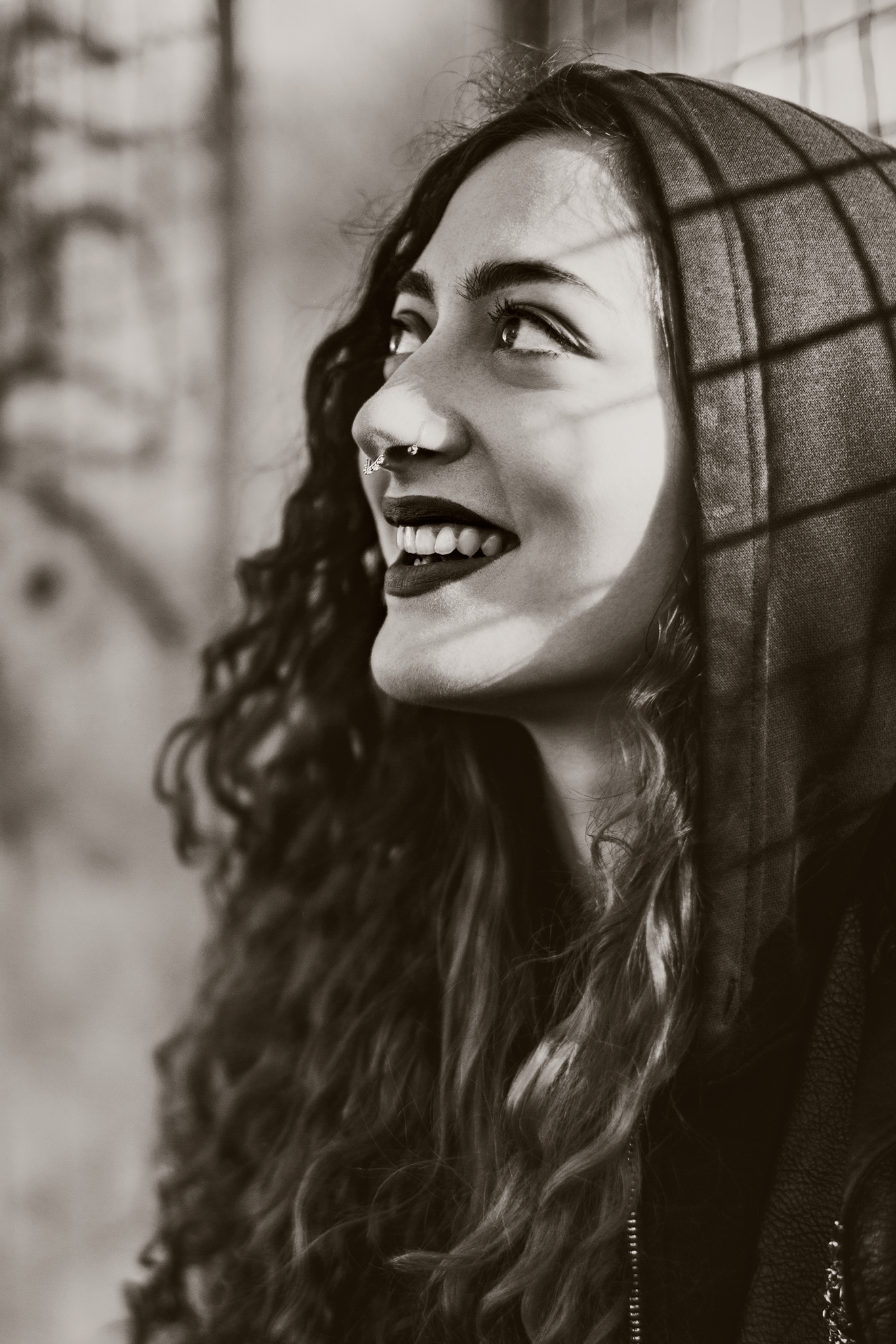
Did you have any vocal coaching, or did you learn everything by yourself?
[Laughs] I never had one! I’m going the ignorant way. No, I never had any vocal lessons or anything like that. I just sang all the time, and that’s probably how I got to understand how my voice works. Some stuff, like doing meditation, was useful because, with the pranayama and all these breathing exercises, you can understand how your lungs work: how to get the air in and out, and how to use it. So that was super useful to me. But apart from that, I just learned by doing concerts. At the beginning, for like three years, I wasn’t doing any vocal warmups before singing a 45 minute-concert. I had cigarettes and mints. In the past months, I‘ve been finding out that it really makes a key difference – so I just started taking half an hour, at least, before the show to do some vocal warmups. This is essential when you’re on tour, and you want your voice to sound good. Especially when you are having a stressful situation, or there are some kind of things that you can‘t control. Also it’s kind of tiring for your voice if you play ten concerts in ten days, and you sleep a maximum of five or six hours. The voice is fragile, more fragile than any other instrument. So you have to take care of it a little bit. I’m still trying to find the best way. It’s a long way to the top [laughs]. The more I play, the more I learn. And it’s great to be on the road and to go on tour. Also because every time I came back home, I would think about how the tour was. At the end, I always understood that I learned something that I didn’t know before or I hadn’t realized before.
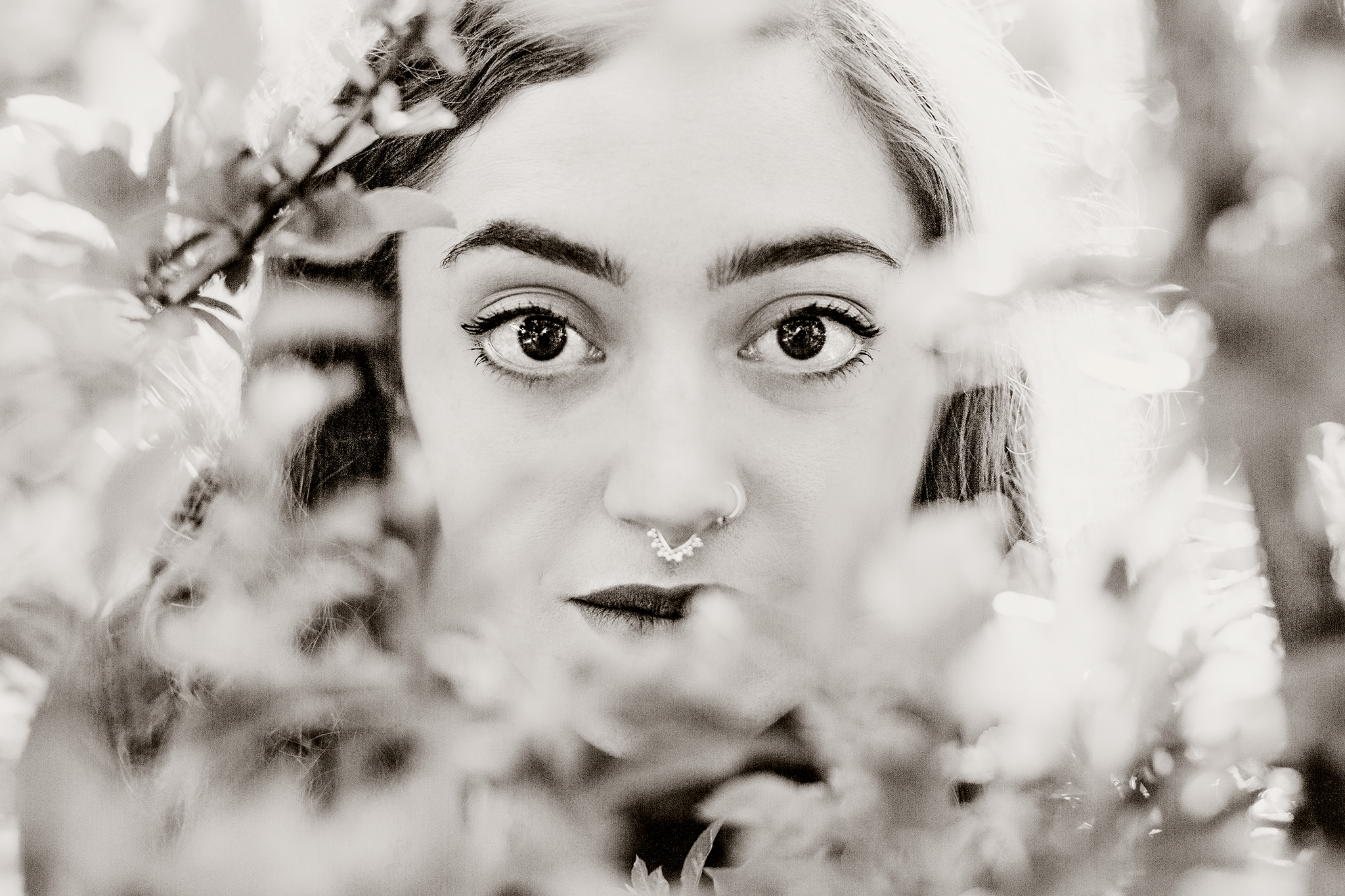
Are you also the one who writes the lyrics?
I am. And I’m the only person who is writing the lyrics for Messa.
Where do you get your inspiration from?
Everything! From everything that can happen, basically. In life, in death. It might be a dream or a nightmare. Or a personal experience that may happen to me or somebody else. Or a movie, or a poem. It can be anything. It’s never the same thing for all Messa songs. In every song that we have, the so-called inspiration comes from so many different things. And it’s just my way to write down what I have inside my mind, or what my perception is on certain kinds of fields, or things, that in some ways have an impact on me. A lot of people ask me what some things are about, but I don’t really want to explain that. I don’t want this to sound negative, or that I am picky. It’s just that they are super personal. It’s strange, because when I write them, the whole thing is locked up, and I have the key – and I keep the key. Also I like people to find their own meaning behind the songs because some of the lyrics have three or four different language keys. They may have just one meaning, or also three, for example, all inside the same song. It’s not to be egotistical, but I like people to find their own meaning. I like to keep it for myself because it’s something that comes out of my mind in a more personal sense, and level. It is there, inside the songs. They are tangible. They are visible. But still, I feel a little bit awkward when people ask me for a precise meaning behind a song. This has happened in many interviews, and sometimes I didn’t really know what to answer. So I am the one who writes the lyrics. The other guys give me a blank sheet of paper, and they tell me that it’s me who is doing that part. It’s a collaboration with one another, so they never tell me what the songs should be about because it’s not the way we do the songs. It just happens to be done in a certain way, and it flows out naturally. We build it up piece by piece, and then in the end the whole picture is right there. There isn’t really a routine for that, because sometimes I listen to the music that they’re doing. Maybe they’re jamming, or rehearsing to build up a song, and I am basically tripping out [laughs], and thinking about it – understanding where my mind goes with the music that they’re doing. And after that, when the song is built to a certain point, then the lyrics come in – as the last part. We build the skeleton, so to say; then comes the arranging part, and then the vocals. Sometimes I write them in the rehearsal room; sometimes I write them anywhere. It doesn’t necessarily happen when I’m there with them, or when I’m home. It might be at different places, or times of the day, or I might write nothing for one week, and then come out with three lyrics in 45 minutes. It’s not something that follows a routine. And the guys never interfere because we have faith in each other. And they’ve never been disappointed, at least from what I know [laughs]. I guess I must be happy about that.
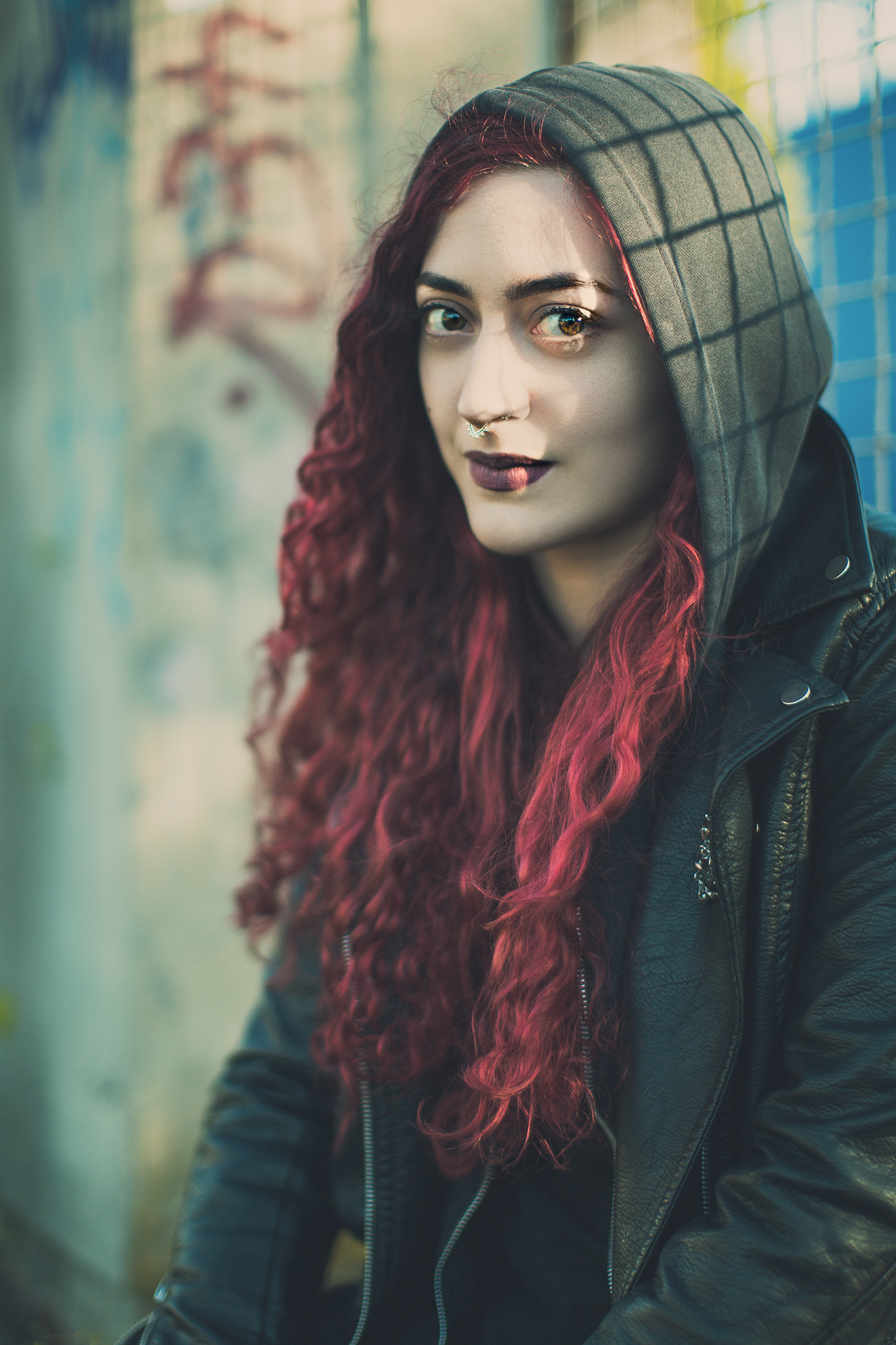
(C) DEPICTED Magazine 2020
No usage of the photos without permission.
This interview was published in the sold out print issue of DEPICTED. It is still available as an eBook here:
Read on:
Interview with Sara from MESSA / DEPICTED #1
Your tour with SABBATH ASSEMBLY has just finished. When you come back home after such a long tour, is it a relief or are you rather sad? Both of them. Being on tour is as much fun, and as......
Interview with Toni from (Dolch) / DEPICTED #1
ENNIO MORRICONE – “Once Upon A Time In The West” [from the 7”, 1968 / German: “Spiel mir das Lied vom Tod”] This is one of my first childhood memories: There is a man hanging on the gallows, standing on......
Interview with Justin Sullivan from NEW MODEL ARMY / DEPICTED #1
Last night you played at a festival dedicated to world peace. Did you ever believe in such a thing? I read somewhere that some historians did some research. In the total of human history there had been a period of......
Interview with Alex Ithymia from SUNSHINE & LOLLIPOPS and BHNP / DEPICTED #1
So let’s switch to English now. I am very curious about your accent. It’s horrible. Ever heard THE SCORPIONS speak English? I am slightly better than Rudolf, but not much [laughs]. It’s a bit strange to talk to a......
Interview with Shazzula from Wolvennest / DEPICTED #1
Shazzula is an interesting name. Where did you find the inspiration for it, and does it have a meaning? Well, in the early days of Napster, I spent some time there exchanging musical interests with some people. Everyone was......
Interview with Marcelo Aguirre from EVIL SPIRIT / DEPICTED #1
You are one of the people with the most diverse taste in music that I know. From metal to jazz to experimental and electronic music, you listen to everything. Was it like this from the beginning, or did it......
Photoshoot with LAUREN RUTH WARD/ DEPICTED #1
Unfortunately there was no time to do an interview, so this is a photo gallery feature. Enjoy. See the complete set of photos with Lauren in fullpage size in the print issue of DEPICTED. Get your copy......
Interview with Malte from NECROS CHRISTOS and SIJJIN / DEPICTED #1
The era of NECROS CHRISTOS is coming to an end. You released the last album and now you are playing the last concerts. Have you already reflected on a personal conclusion to this project? What were your highlights and......
Interview with EVILYN FRANTIC / DEPICTED #1
I heard this story once, that when you started your life as an artist, you ran away with the circus. Is this true, or is it just a legend? No, it is very true. I kind of ran away......


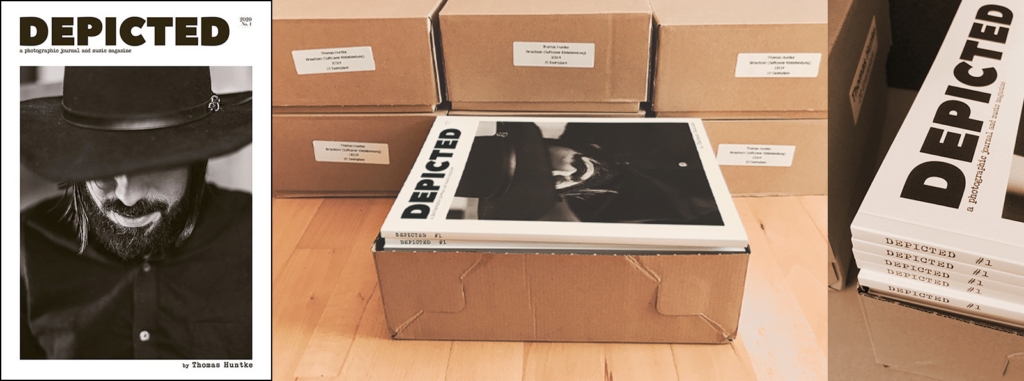
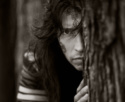


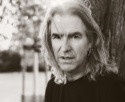
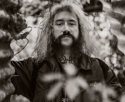
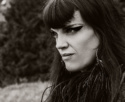
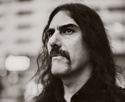



Sorry, the comment form is closed at this time.